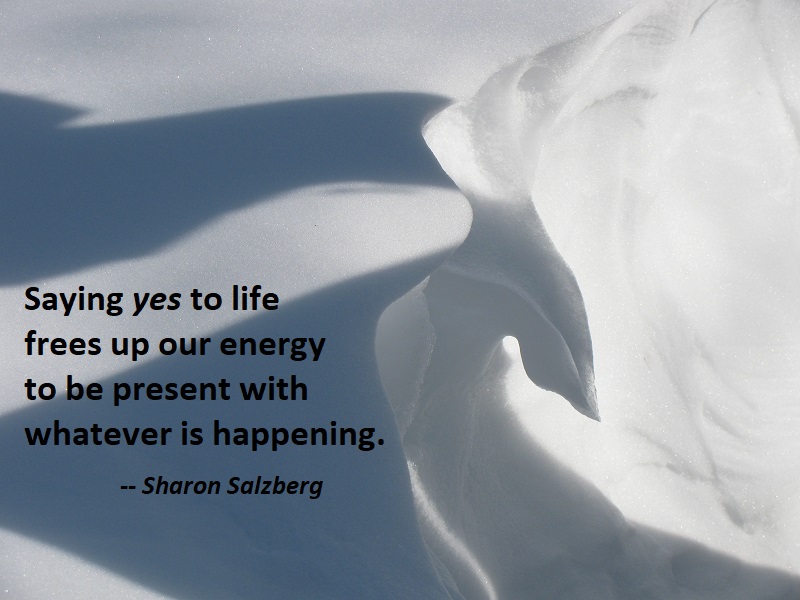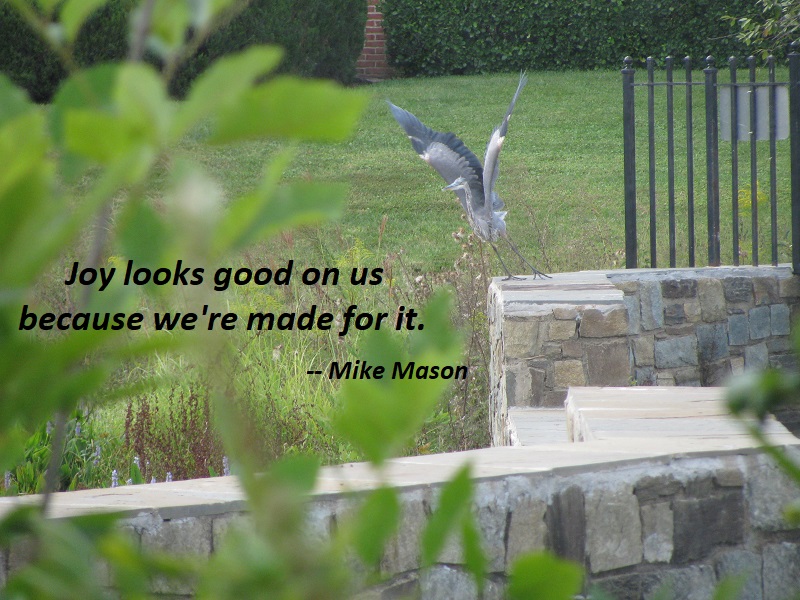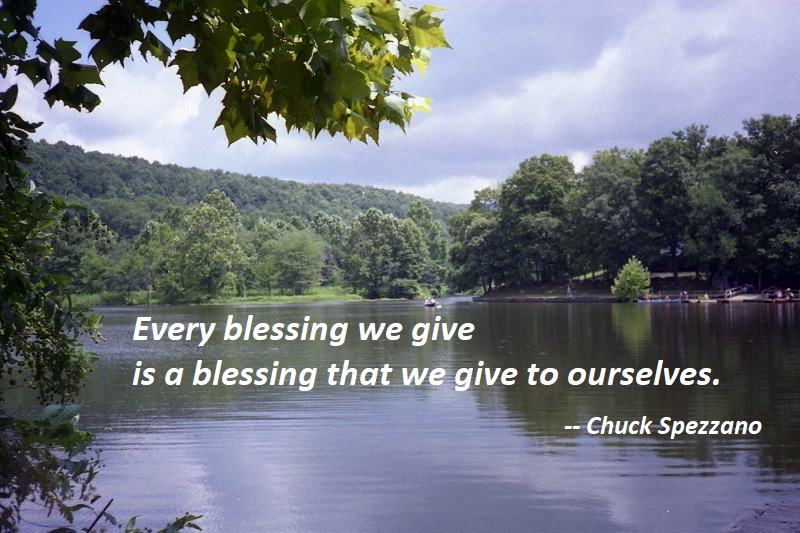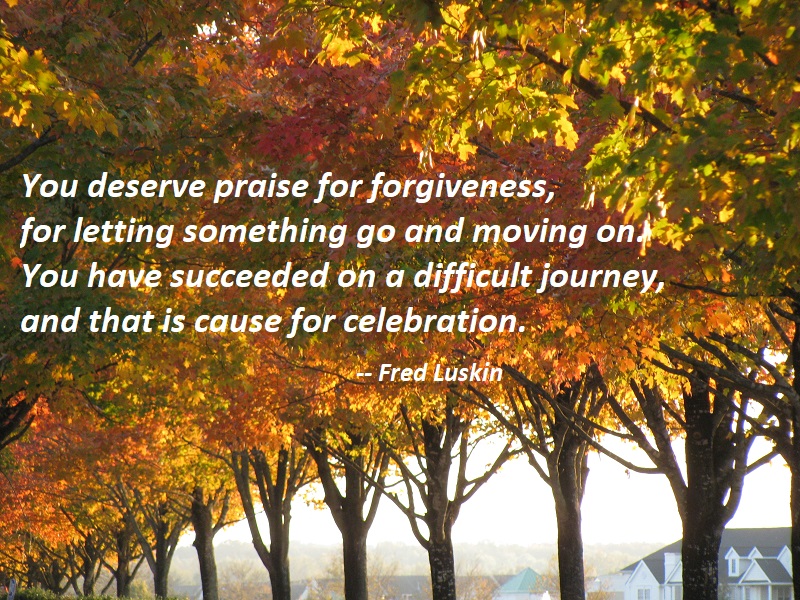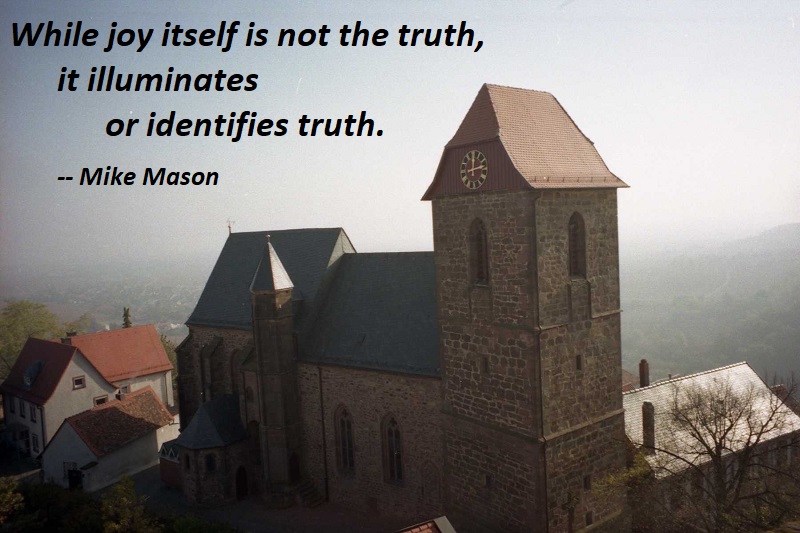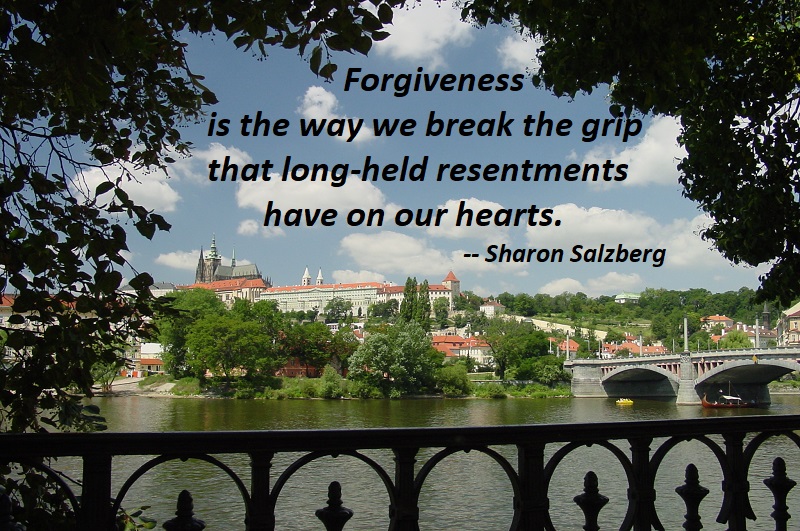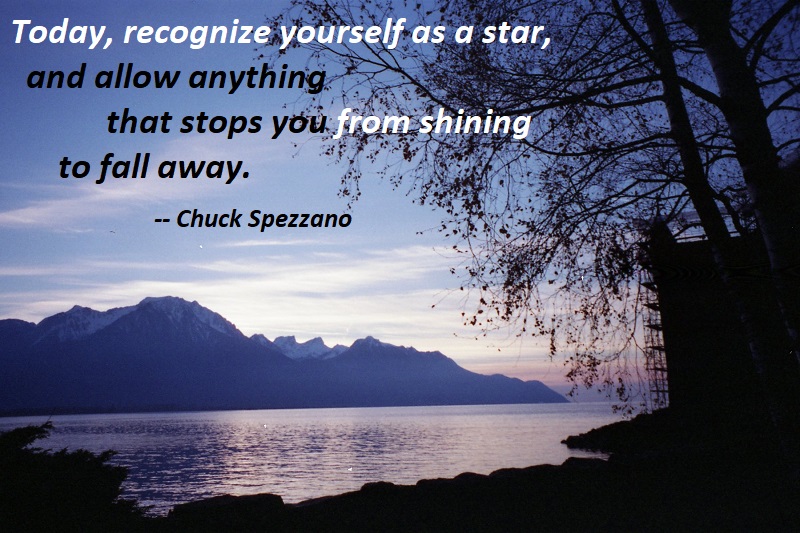
A star is a person who shines so brightly, who gives their gifts so fully, who loves so completely that everyone is drawn by the light of this star to find the way home. For us to truly know ourselves is to know that we are a star. For us to be truly ourselves is to recognize the genius in us, and to know what a gift we are to everyone around us. Stars may do very quiet things, but they shine an intense love light that burns through the darkness.
Today, recognize yourselves as a star, and allow anything that stops you from shining to fall away. Choose to forgive, or let go of any grievance or judgment that allows you control over yourselves, others, or the situation. Choose not to use anyone or anything to hold yourselves back. Choose to utterly and completely love. Nothing else will satisfy you. Nothing else is worthy of you.
— Chuck Spezzano, If It Hurts, It Isn’t Love, p. 333
Photo: Lake Geneva and Chateau de Chillon, Switzerland, November 12, 2000
